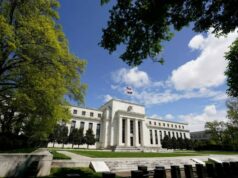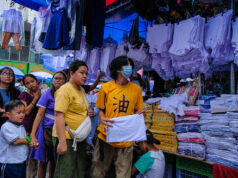Hot money outflow continues for 6th straight month
By Luz Wendy T. Noble, Reporter
Short-term foreign portfolio investments continued to flee the Philippine financial system for the sixth consecutive month in August, although this was the smallest outflow since June, data from the Bangko Sentral ng Pilipinas (BSP) showed.
In a statement, the BSP said net outflows of “hot money” — called as such due to the ease by which these funds enter and leave an economy – reached $126.76 million in August. Hot money has yielded a net outflow since March.
Despite this, the August figure is smaller by 67% compared to the net outflow of $391.74 million a year ago and by 72% against the $453.17 million in July. It is also the smallest outflow since June’s $235 million.
For the first eight months, hot money yielded a net outflow of $3.889 billion, surging by 254.1% from the $1.098 billion net outflow during the same period a year ago.
This year, the BSP projects foreign portfolio investments to record a $2.4 billion net inflow, much lower than the $8.2-billion net inflow forecast it gave in November 2019 before the pandemic.
Investor confidence continued to be affected by the uncertainties caused by the coronavirus disease 2019 (COVID-19) pandemic. Earlier this year, geopolitical trade tensions as well as issues related to local water concessionaires also worried investors, the BSP said.
In August, inflows of foreign portfolio investments shrank 45.08% to $666.51 million from $1.213 billion a year ago. It also dropped by 7.31% from the $719.11 million in July.
Outflows declined 50.58% to $793.27 million from $1.605 billion in August 2019. It also sank by nearly a third (32.33%) from the $1.172 billion the prior month.
“The United Kingdom, Singapore, the United States, Hong Kong and Luxembourg were the top five investor countries for the month, with combined share to total at 82.6%,” the BSP said.
During the month, about 84.3% of the investments went into the stock market, specifically in securities of holding firms, property companies, banks, food, retail, and telecommunications. The remaining 15.7% flowed into government securities.
Bond issuances both from the government and the private firms may have caused the smaller net outflow during the month, said Rizal Commercial Banking Corp. Chief Economist Michael L. Ricafort.
“The record RTB (retail Treasury bond) issuance and various corporate bond issuances/fund-raising activities may have entailed some foreign investments, thereby may have helped in improving the latest available net foreign portfolio investments data,” Mr. Ricafort said in a text message.
The RTB offer period ran for three weeks from mid-July until August. The Bureau of the Treasury raised a record P488.5 billion in fresh funds through the five-year RTBs while P27.8 billion were from switch subscriptions.
Investor sentiment may have been dampened by the pandemic as well as political risks in the Philippines such as corruption and project delays, according to Asian Institute of Management economist John Paolo R. Rivera.
“This situation calls for our attention in improving the Philippine image. If we can project more stable economic prospects and contain the pandemic, we can expect an improvement in hot money’s trend,” Mr. Rivera said in a text message.



